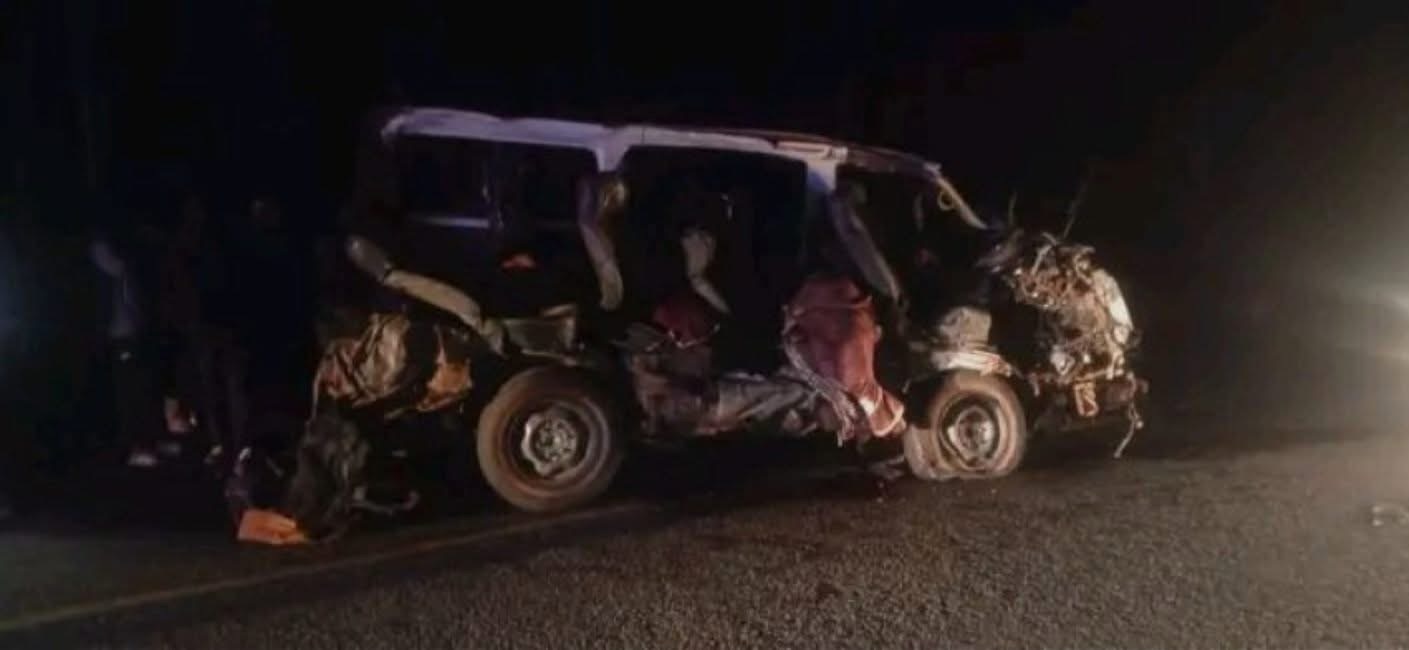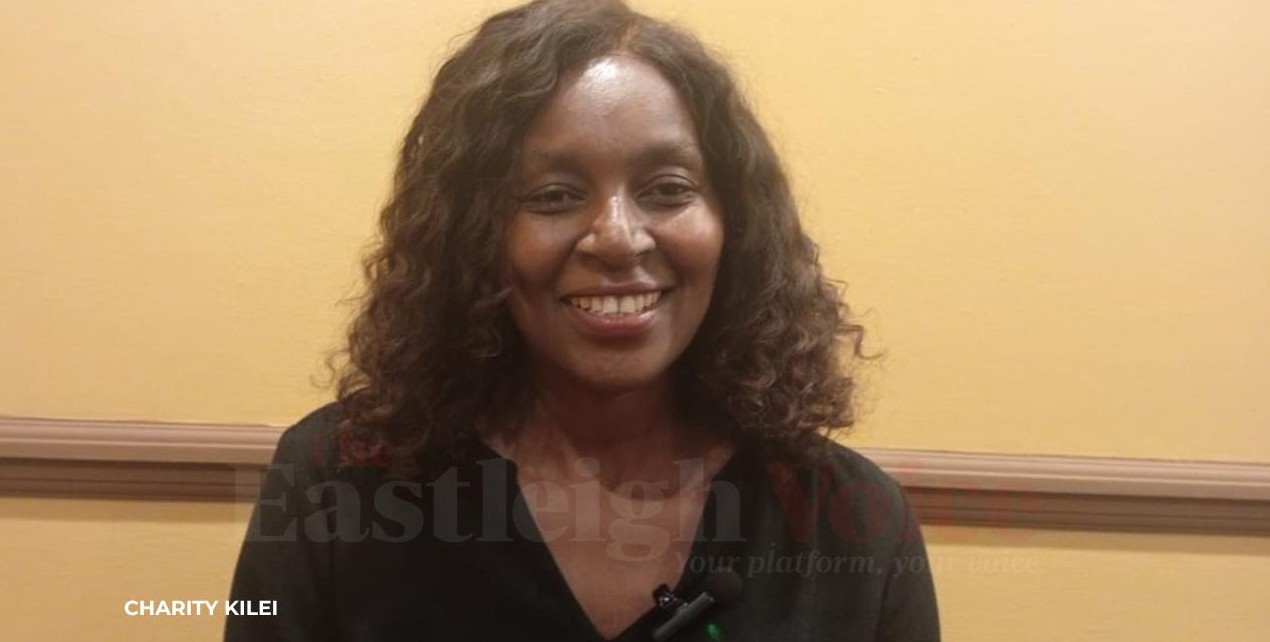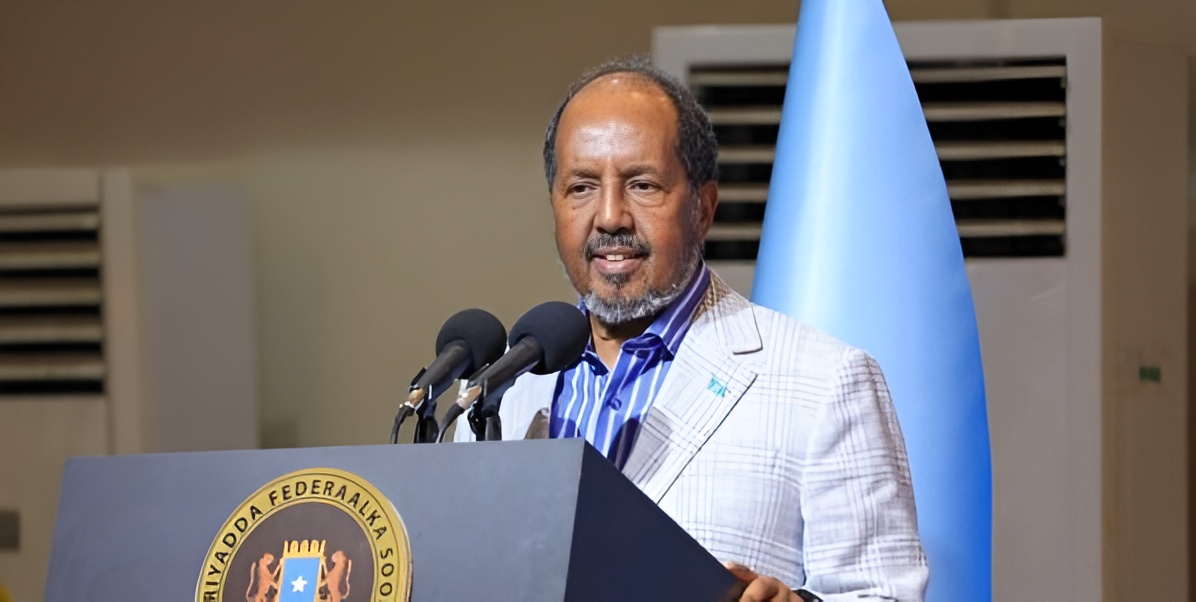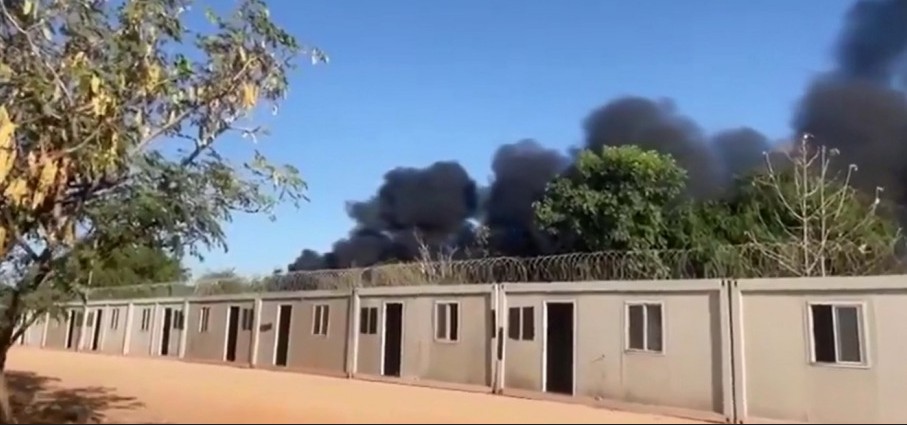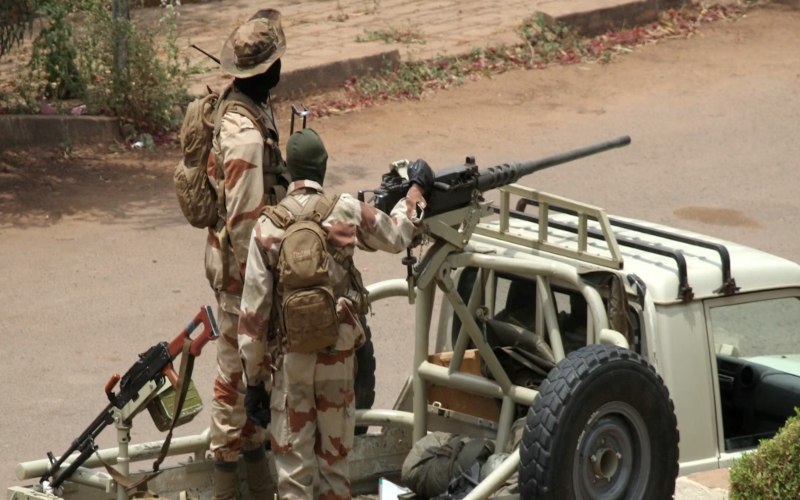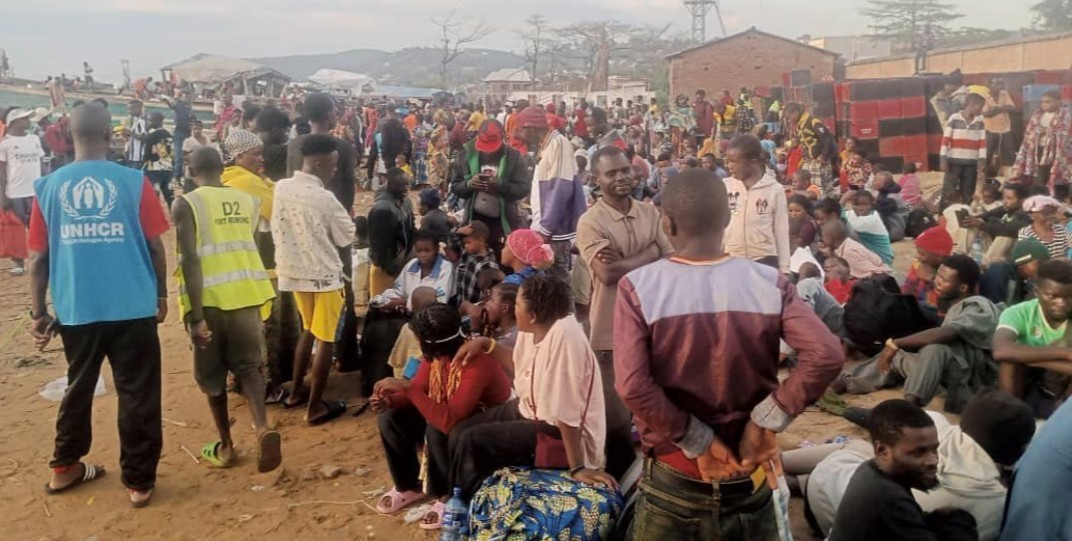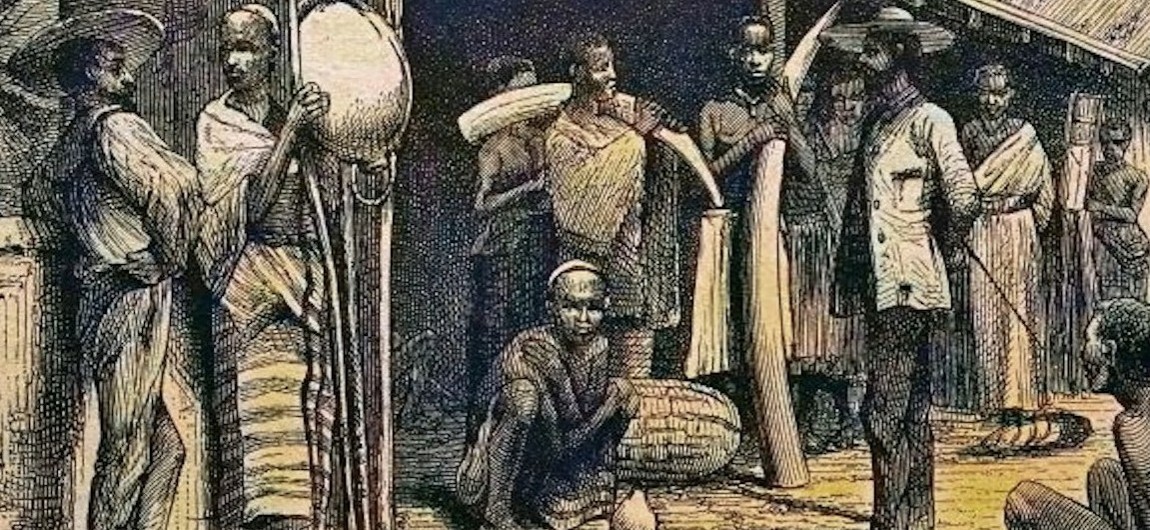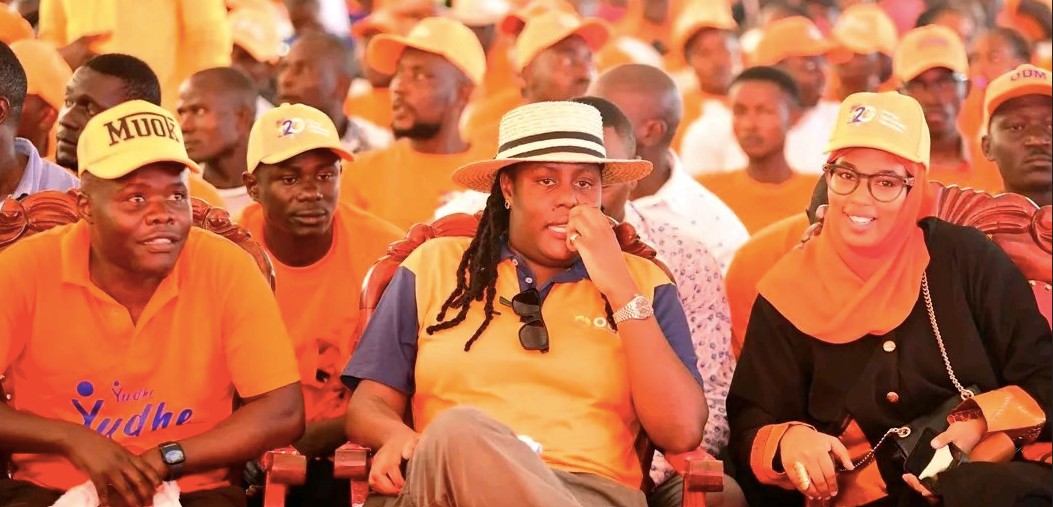Thousands displaced in Garissa town after River Tana bursts banks
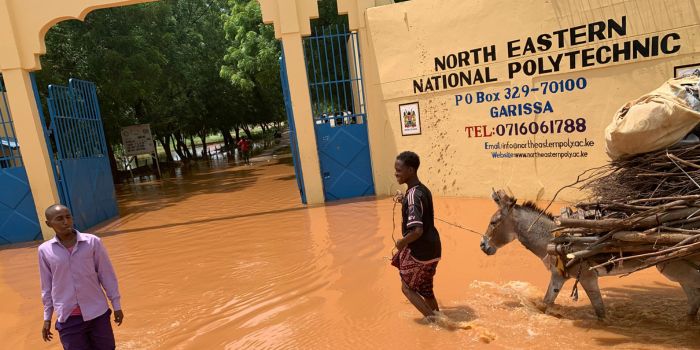
Residents of Bulla Punda, Kamor, Sheikh, Vumbi, Windsor, and Bulla Nyuki were forced to move to higher ground after the floodwaters engulfed their houses.
Thousands of families were displaced in Garissa town and the neighbouring Mororo in Tana River County after the River Tana burst its banks.
In Garissa town, residents of Bulla Punda, Kamor, Sheikh, Vumbi, Windsor, and Bulla Nyuki were forced to move to higher ground after the floodwaters engulfed their houses.
More To Read
- Garissa town residents call for urgent drainage fix as floodwaters swamp businesses, homes
- Government activates nationwide emergency response amid heavy rain advisory
- Garissa, Tana River residents urged to evacuate as Masinga dam exceeds capacity
- How disquiet over villages cluster project ignited deadly Tana River clashes
- KenGen assures Kenyans of steady power supply despite reduced rains
- Flood-damaged Tana Delta schools to be permanently relocated – CS Machogu
Ibrahim Sankus Aden, alias Hailow, an 80-year-old man who was displaced from his home in Bulla Punda, said he was forced to flee to Jaribu Primary School with his family of four wives and 14 children.
"We are camping in this open-air compound, with no tents. We lost several household items and foodstuffs to the raging floods," Ibrahim said, adding that the case was the same just four months ago when the El Nino rains hit.
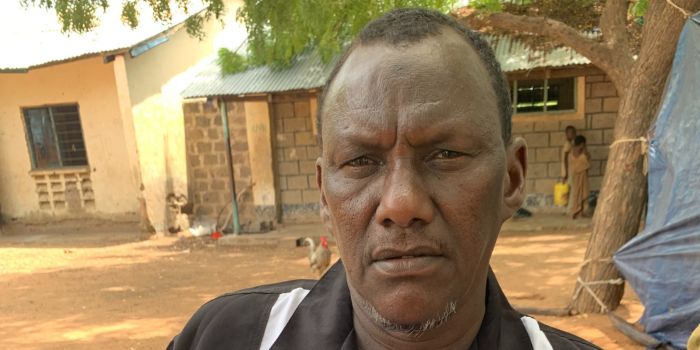 Aden Hassan Bille, the Garissa County chairperson of persons with disabilities and the Bulla Punda residents' association, during an interview at the Jaribu Primary School IDP camp on April 28, 2024. (Photo: Issa Hussein)
Aden Hassan Bille, the Garissa County chairperson of persons with disabilities and the Bulla Punda residents' association, during an interview at the Jaribu Primary School IDP camp on April 28, 2024. (Photo: Issa Hussein)
Aden Hassan Bille, the Garissa County chairperson of persons with disabilities and the Bulla Punda residents' association, was among the internally displaced persons (IDPs) at Jaribu.
Aden called for donations of tents and food, saying most of the affected families were spending nights in the cold.
"We are tired of repeat displacements. We need a lasting solution to the endless cycles of the River Tana floods," he said, citing the overflow of the Seven Forks Dams.
"After the El Nino rains, we had a meeting with KenGen officials, who promised that they would create more dams to address the endless crisis. The government must come up with an urgent remedy."
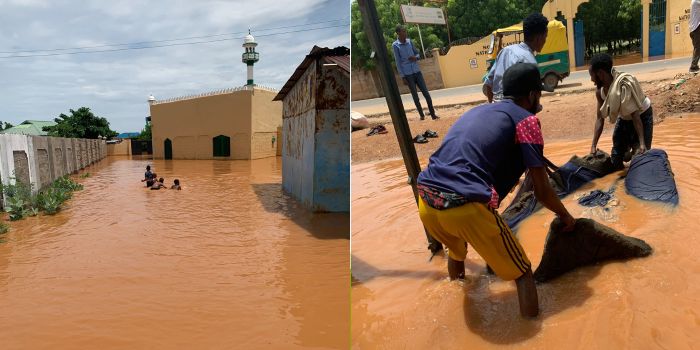 This combination of pictures shows floodwaters at the Towfiq Mosque in Bulla Kamor, and residents Hashim Aden and Mohamud Ali of Bulla Kamor, salvaging property following heavy rain on the night of April 27, 2024. (Photos: Issa Hussein)
This combination of pictures shows floodwaters at the Towfiq Mosque in Bulla Kamor, and residents Hashim Aden and Mohamud Ali of Bulla Kamor, salvaging property following heavy rain on the night of April 27, 2024. (Photos: Issa Hussein)
Aden further urged organisations assisting IDPs to concentrate on cash transfers, not the donation of relief food, as this is looted.
Batula Mohamed Lukumso, a representative of displaced Bulla Kamor residents, also appealed for urgent help, saying the schools where they sought refuge were in poor, unhygienic states, presenting health risks.
Bashir Abdi Guhat, who was displaced from Bulla Vumbi, called for land allocation to affected families, saying the floods caused immense destruction and displacement.
His sentiments were echoed by Said Abdullahi, a youth leader from Bulla Punda.
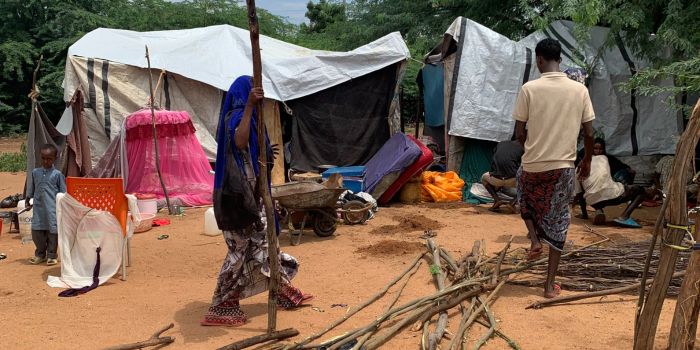 A displaced family puts up a makeshift house at Hyuga Girls' Primary School in Garissa town, following a heavy downpour on the night of April 27, 2024. (Photo: Issa Hussein)
A displaced family puts up a makeshift house at Hyuga Girls' Primary School in Garissa town, following a heavy downpour on the night of April 27, 2024. (Photo: Issa Hussein)
Several public and private institutions were affected, among them the Jamhuri Club, the Galbet chief's office, the North Eastern headquarters of the Teacher Service Commission (TSC), the North Eastern National Polytechnic, the Garissa livestock slaughterhouse, Salama Girls' Secondary School, and the Garissa Farmers Training Centre.
Others were the Katim and Towfiq mosques in Bulla Kamorm, with Sheikh Sahal Mohamed of Towfiq saying the public address system was damaged.
Affected families put up makeshift houses at Jaribu Primary, Kazuko Girls', Iftin Primary, Young Muslims Secondary, and Hyuga Girls' schools, and the North Eastern Police Training Centre.
Residents of Mororo, Bakuyu, and Ziwani in Tana River County were also displaced, with some seeking refuge in schools in the neighbouring Garissa town.
Top Stories Today
